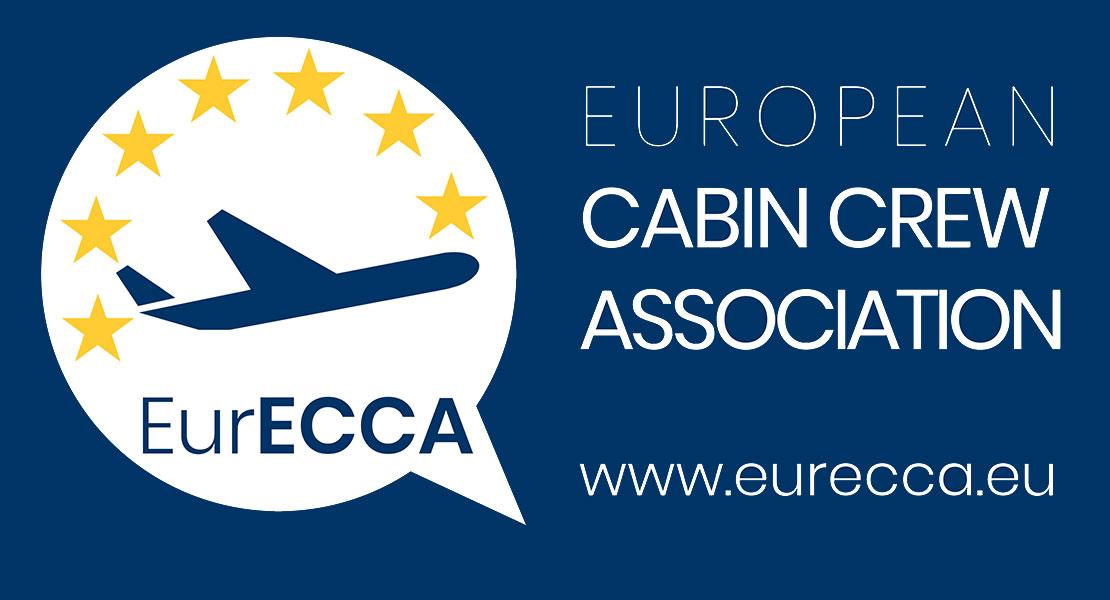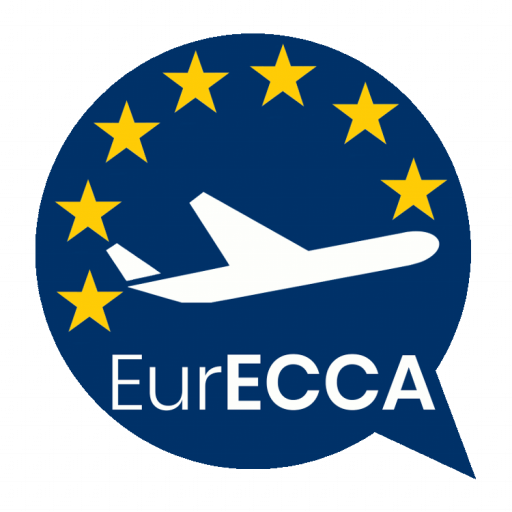EurECCA Priorities for Engagement with European Parliament and European Commission on Transport and Social Issues
EurECCA, the European Cabin Crew Association, is dedicated to advancing the rights and welfare of cabin crew across Europe. In line with our mission, we seek to engage Members of the European Parliament (MEPs) and the Commissioner Mr. ApostolosTzitzikostas for Sustainable Transport and Tourism and Mrs. Roxana Mînzatu, Executive Vice-President for People, Skills and Preparedness to address several critical issues impacting the aviation sector. These issues range from regulatory reforms to improving working conditions for cabin crew, particularly considering new business models and employment trends.
This EurECCA’s position paper outlines our key priorities for legislative and policy action in this upcoming 5 years term.
- Reform of the Posting of Workers Directive for Aviation
The current legislative framework leaves significant loopholes that allow for inconsistent application of laws across Member States, leading to unfair competition and the erosion of working conditions. EurECCA calls for the development of a sector-specific Directive for aircrews, similar to the one in place for road transport workers, to clearly define applicable employment law and ensure fair treatment across borders.
- Objective: Introduce a Directive specific to aircrews that closes legal loopholes, particularly regarding the habitual place of work and employment relationship definitions.
- Ask: European Parliament and the Commission should prioritize drafting this Directive and ensure its rapid adoption.
- Revision of Regulation (EC) No 1008/2008
Regulation (EC) No 1008/2008, which governs common rules for the operation of air services, must be revised to address issues like wet-leasing, operational bases, and posting rules. The lack of clear regulations in these areas contributes to the exploitation of aircrew through atypical forms of employment.
- Objective: Urgently review and revise the Regulation to address the gaps allowing for legislation shopping and circumventing labor laws.
- Ask: The European Commission should prioritize this revision on its legislative agenda, incorporating input from social partners and stakeholders in the aviation sector.
- Revision of Working Time Directive for Cabin Crew
Council Directive 2000/79/EC, which regulates working time for mobile workers in civil aviation, needs to be updated to reflect the realities of today’s aviation sector. The current focus on Flight Time Limitations (FTL) addresses only safety but not the broader social aspects of working conditions, such as health and safety risks at work directly linked to cabin crews.
- Objective: Revise working time rules to ensure that cabin crew’s health and well-being are protected, not just in terms of aviation safety, but also social aspects.
- Ask: The European Commission should support a review of these rules in collaboration with social partners.
- Ensuring Safety through Reporting Systems
The current safety reporting systems do not sufficiently cover socio-economic factors impacting cabin crew, particularly those employed under atypical forms of employment (e.g., bogus-self-employment, fixed-term contracts, temporary agencies, wet-leasing). EurECCA urges the European Aviation Safety Agency (EASA) to implement more robust reporting tools and strategies.
- Objective: Amend Regulation (EU) No 376/2014 to include cabin crew as a specific category in the ECCAIRS safety reporting system.
- Ask: EASA must fulfill its mandate under Article 89 of Regulation (EU) 2018/1139 to address the socio-economic risks to aviation safety, particularly for crew under precarious employment.
- Health and Safety at Work Directive
Council Directive 89/391/EEC on health and safety at work currently does not adequately cover the specific risks faced by cabin crew. Their unique work environment, including exposure to health risks, requires a more tailored approach to occupational health and safety.
- Objective: Create an individual Directive under Article 16 of the framework Directive that specifically addresses the health and safety needs of cabin crew.
- Ask: The European Commission should initiate a proposal for this new Directive and ensure the active involvement of social partners.
- Combating Atypical Forms of Employment Practices
The rise of temporary working agencies, bogus self-employment, posting of workers and wet leasing in the aviation sector poses a significant threat to the job security and rights of cabin crew. Airlines, particularly low-cost carriers, increasingly rely on intermediaries to circumvent labor laws, leading to a precarious workforce.
- Objective: Strengthen enforcement of existing labor laws and improve cooperation between national and European authorities with an enforcement and extended mandate of the European Labour Authority to aviation sector.
- Ask: The European Commission must work with Member States to enhance the enforcement of labor laws such as cross-border mobility rules to improve the legal certainty for cabin crew in aviation.
EurECCA urges MEPs, the Commissioner of Transport and the Executive Vice-President for People, Skills and Preparedness to champion these crucial reforms. The European aviation sector must be safeguarded from exploitation and legal loopholes that undermine fair working conditions and therefore promote unfair competition and social dumping. A collaborative approach involving regulators, social partners, and the aviation industry is essential to create a resilient and equitable framework that protects aircrew and fosters fair competition.
EurECCA represents, protects and develops the rights and needs of all cabin crew
all over Europe.
FLYING TOGETHER – PROTECTING EACH OTHER
About EurECCA: established in Brussels in 2014, the European Cabin Crew Association, EurECCA, represents, protects and develops the rights and needs of cabin crew all over Europe. It is composed of cabin crew unions from European Union Member States as well as accession and bordering states and represents some 33,000 cabin crew accounting for 70% of all organized cabin crew in Europe. EurECCA has no political connections. EurECCA’s work is around Cabin Crew working conditions, wages, social protection and health and safety at work.
EurECCA European Cabin Crew Association AISBL
Avenue Louise 143/4
1050 Brussels, Belgium

